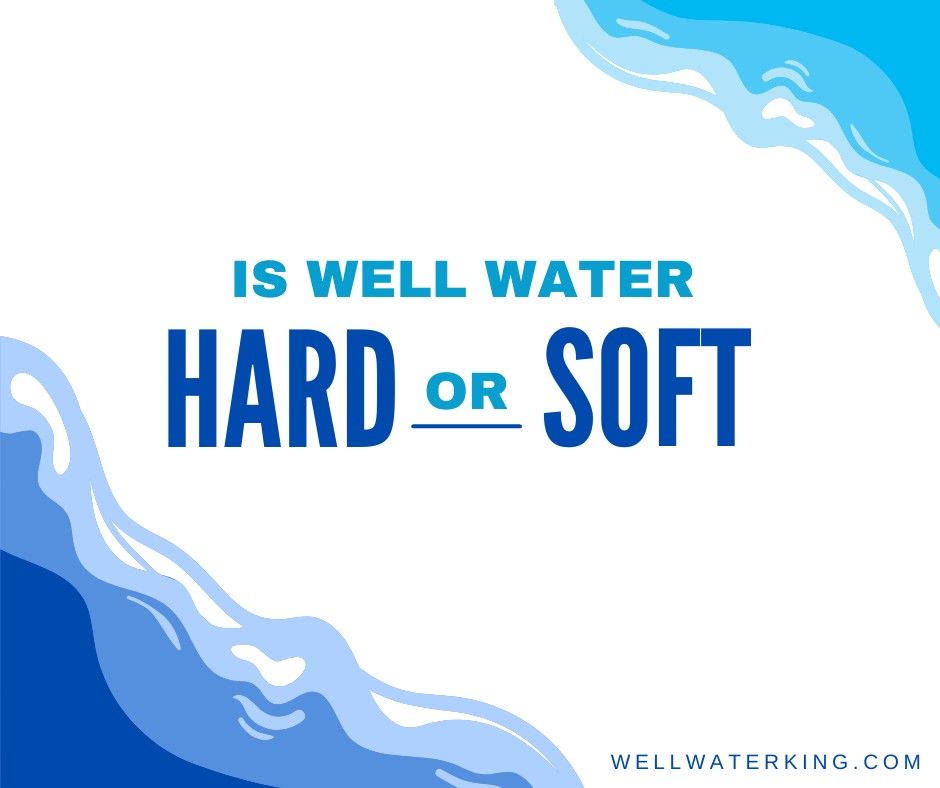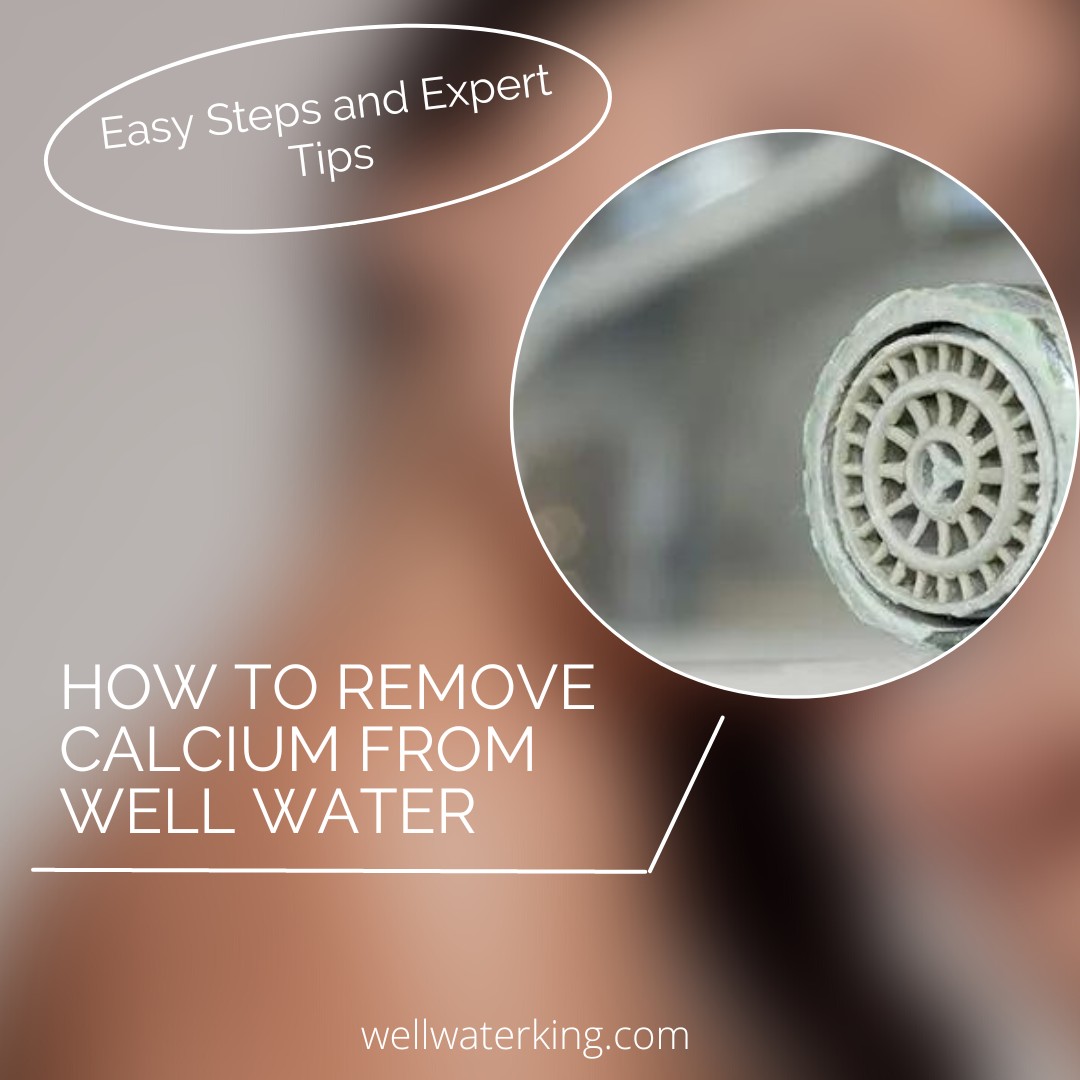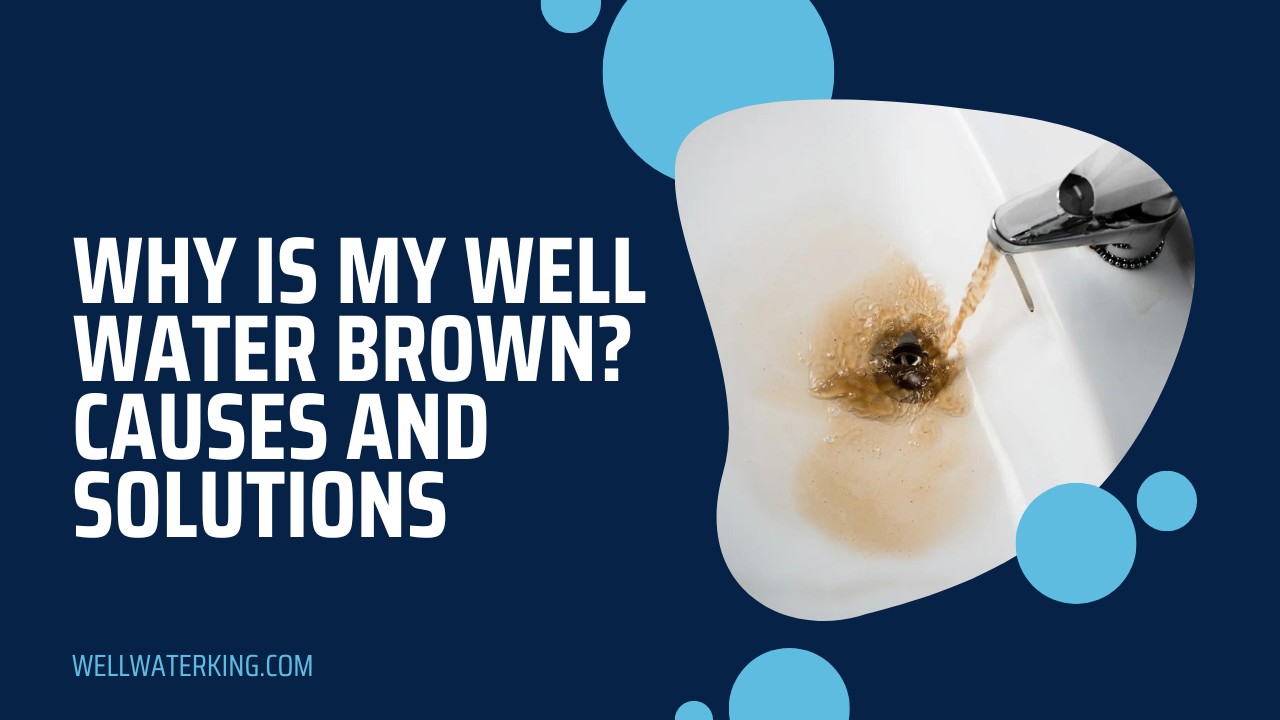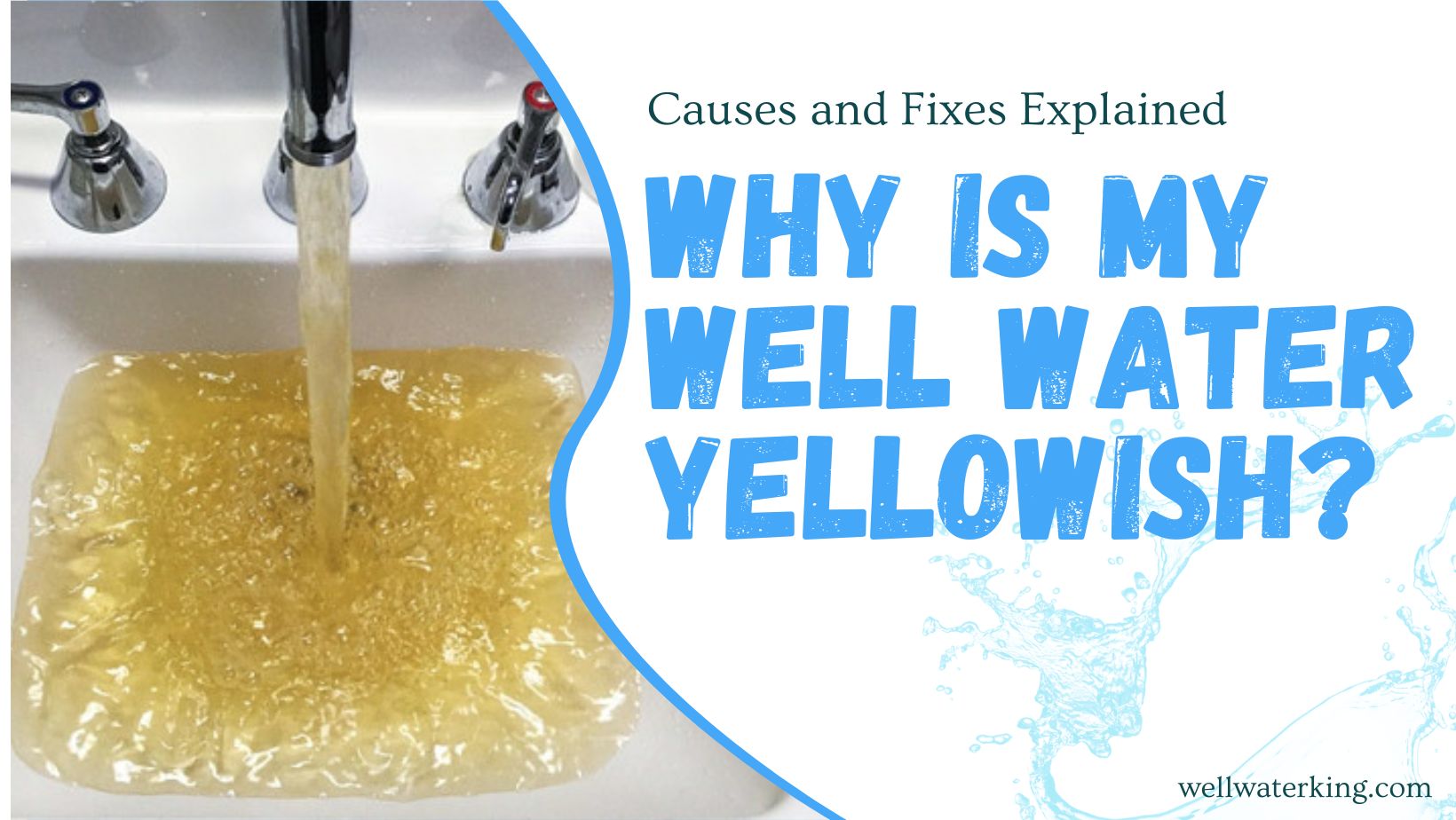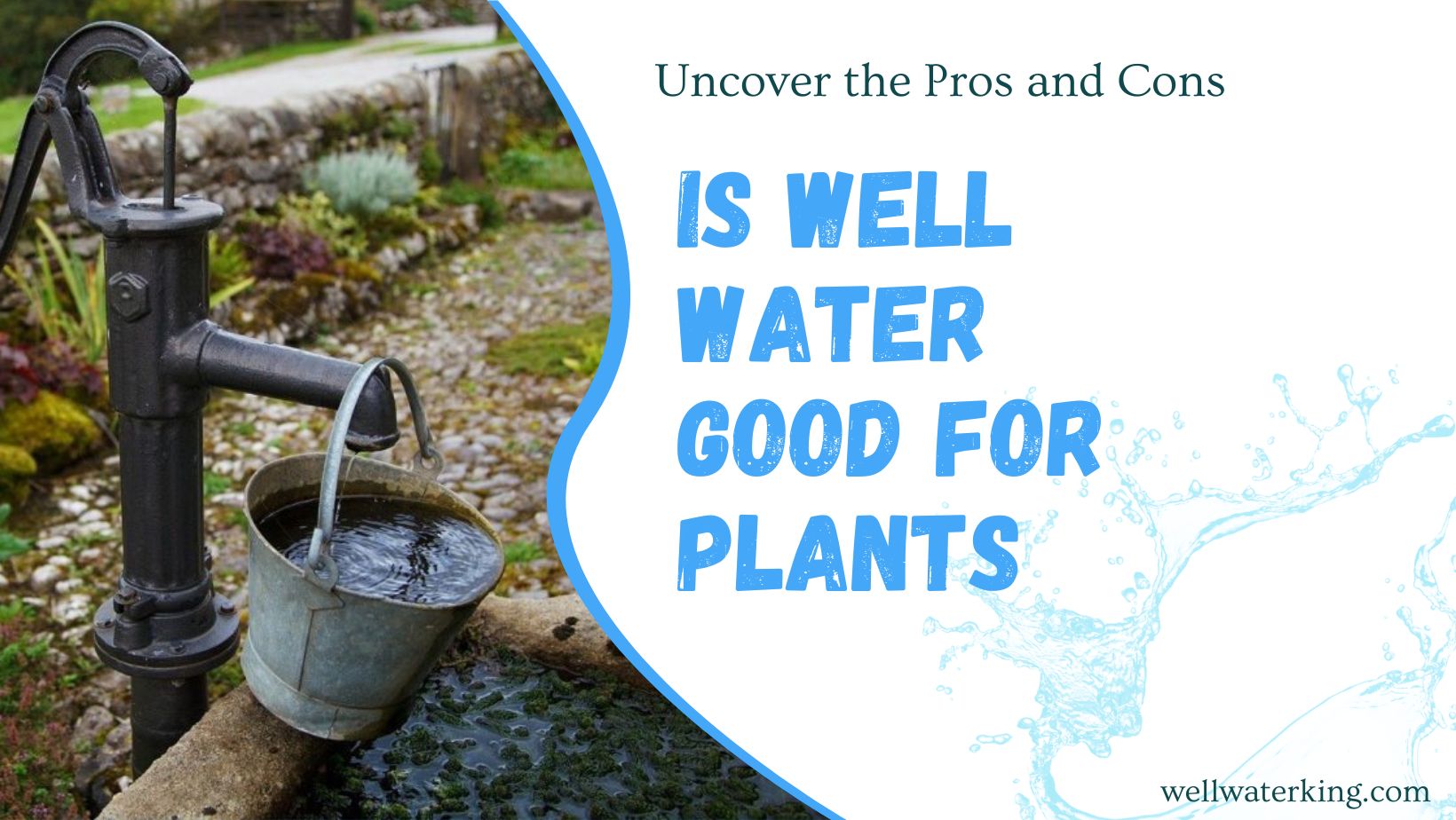If you rely on well water in your home, you’ve probably found yourself wondering if the water pouring from your faucets is considered soft or hard. You may have noticed residue or spots left behind on dishes, shower walls, and faucets, despite your best scrubbing efforts. Or perhaps you’ve found your soap and shampoo don’t lather as easily as expected. These are common signs your well water may be on the hard side.
Now, to answer the burning question: “Is well water soft or hard?“
The answer is, it depends. Well water can be hard, soft, or somewhere in between. The hardness of well water is determined by the levels of calcium and magnesium dissolved in it, which vary depending on the geology of the area where the well is located. So, whether your well water is hard or soft depends on where you live and the specific mineral composition of your local groundwater.
But what exactly does it mean for water to be hard or soft, and how does it affect your everyday life? Let’s explore these questions and uncover the secrets of well water.
We’ll delve deep into the fascinating world of well water, explaining the science behind hard and soft water, the factors that influence water hardness, and the effects it can have on your home. We’ll also explore how to test your well water’s hardness and discuss solutions for addressing water hardness issues.
Understanding Hard and Soft Water
When it comes to the hardness or softness of water, there’s a lot to unpack. Let’s dive right in!
What is Hard Water?
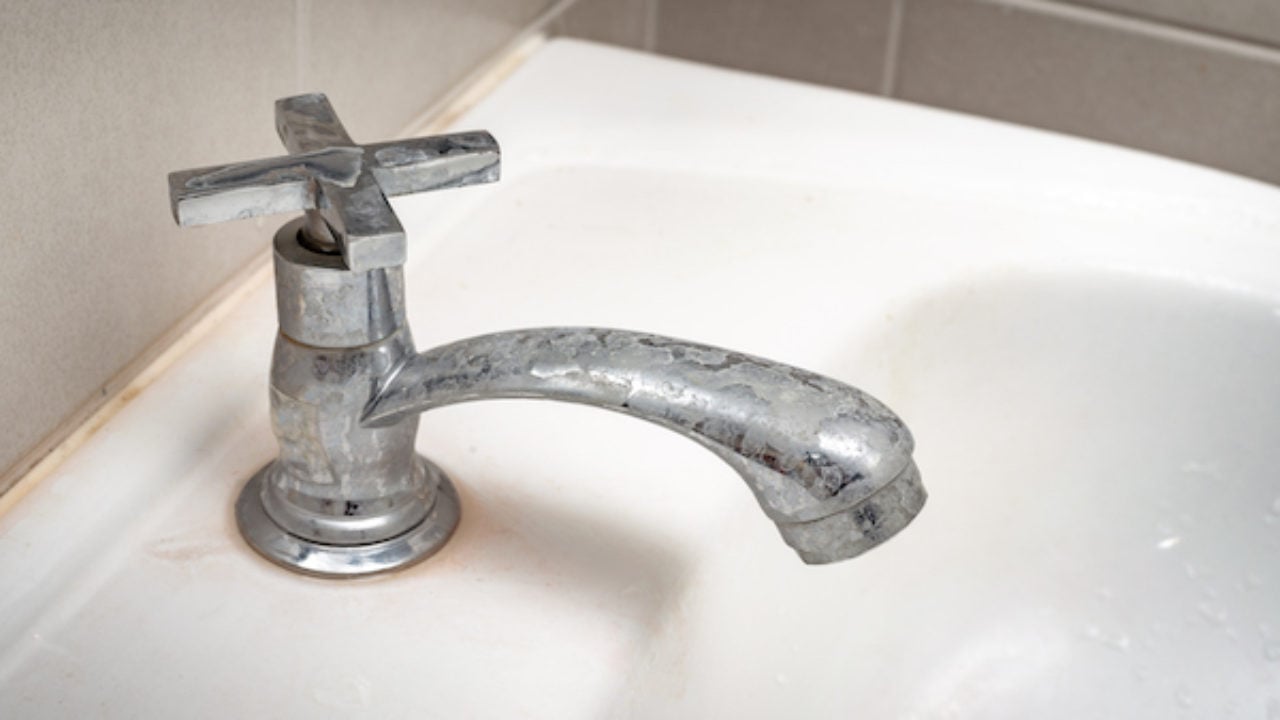
Hard water is a term used to describe water that contains a high concentration of dissolved minerals, primarily calcium and magnesium. These minerals are picked up by the water as it flows through rock formations and soil underground. The hardness of water is usually measured in grains per gallon (gpg), parts per million (ppm), or milligrams per liter (mg/L). Water is typically categorized as soft, slightly hard, hard, or very hard based on the concentration of these minerals.
Water Hardness Levels
| Hardness Level | Mineral Concentration (mg/L) | Mineral Concentration (ppm) | Mineral Concentration (gpg) |
|---|---|---|---|
| Soft | 0-60 | 0-60 | 0-3.5 |
| Slightly Hard | 61-120 | 61-120 | 3.6-7.0 |
| Hard | 121-180 | 121-180 | 7.1-10.5 |
| Very Hard | 180+ | 180+ | 10.6+ |
The causes of hard water are natural. When rain falls from the sky, it is naturally soft, containing very few minerals. However, as it travels through the ground and into water sources, it comes into contact with rocks and soil that contain calcium and magnesium. The water can dissolve these minerals, and they become part of the water, making it hard.
Factors that Determine Water Hardness
- Geological Composition: The mineral content of the rocks and soil in a particular region largely influences the hardness of the water. Areas with limestone, chalk, or gypsum rock formations are more likely to have hard water, as these rocks are rich in calcium and magnesium.
- Rainfall: Rainfall can affect the hardness of water. In areas with high rainfall, rainwater can dilute the minerals in the water, making it softer. Conversely, in regions with low rainfall, there is less dilution, and water is more likely to be hard.
- Groundwater Movement: The longer water is in contact with rocks and soil, the more minerals it can dissolve. Regions with slow-moving groundwater are more likely to have hard water because the water has more time to absorb minerals.
- Water Source: Water hardness can vary depending on the source of the water. Surface water, such as rivers and lakes, is typically softer than groundwater, as it has less contact with minerals in the ground. Wells that draw from deep aquifers are more likely to produce hard water.
- Human Activities: Human activities such as agriculture and industrial processes can influence water hardness. Fertilizers and industrial waste can increase the mineral content of water, leading to harder water.
- Water Treatment Processes: Some water treatment processes can affect water hardness. For example, certain methods of water purification, such as reverse osmosis and distillation, can remove minerals from the water, making it softer.
- pH Level of Water: The pH level of water can influence its hardness. Water that is more alkaline (higher pH) tends to be harder because it can dissolve more minerals.
- Temperature: Water temperature can affect its ability to dissolve minerals. Warmer water can hold more minerals in solution, making it harder. However, as water is heated, minerals can precipitate out, leading to scale deposits in appliances like water heaters.
What is Soft Water?
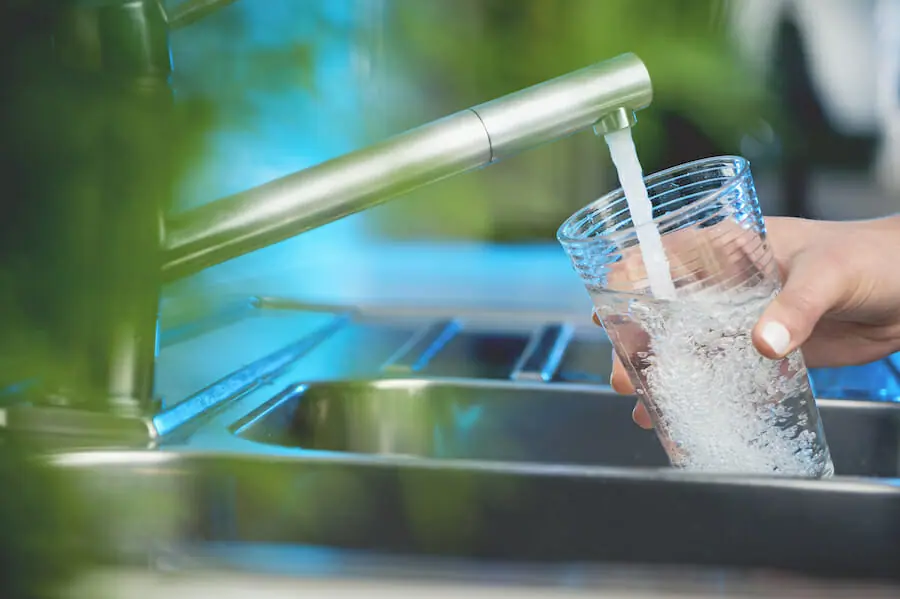
Soft water is water that has low concentrations of dissolved minerals, particularly calcium and magnesium. Unlike hard water, which can leave mineral deposits on surfaces and interact poorly with soap, soft water is free from these issues. Soft water is naturally occurring in some regions, while in others, it may result from water treatment processes.
Soft water has a mineral concentration of less than 60 milligrams per liter (mg/L) or 3.5 grains per gallon (gpg). In contrast to hard water, soft water has a smoother feel, produces more lather with soap, and doesn’t leave mineral stains on surfaces.
There are several benefits of soft water:
- Better Lathering: Soft water lathers easily with soap, leading to more effective cleaning. It also rinses off easily, leaving skin and hair feeling cleaner and softer.
- Longer-lasting Appliances: Soft water doesn’t cause scale buildup in appliances like dishwashers and water heaters, extending their lifespan and improving efficiency.
- No Mineral Stains: Soft water doesn’t leave behind mineral stains on surfaces like faucets, showerheads, and glassware.
- Easier Cleaning: Soft water makes it easier to clean dishes, laundry, and surfaces around the home, as it doesn’t leave behind mineral residues.
- Improved Energy Efficiency: Without scale buildup in water heaters, soft water heats up more quickly, reducing energy consumption.
Soft water can occur naturally in regions with low mineral content in the ground, such as areas with granite or volcanic rock formations. It can also result from water treatment processes like ion exchange, reverse osmosis, and distillation, which remove calcium and magnesium ions from the water. Some households install water softeners to treat hard water, converting it into soft water for use in the home.
It’s important to note, however, that while soft water has many benefits, it can have some downsides as well. Soft water may be more corrosive to plumbing, which can lead to higher levels of metal ions like copper and lead in the water. Additionally, because it lacks the minerals found in hard water, soft water can have a slightly different taste, which some people may find less appealing.
Testing the hardness of your well water is essential if you’re experiencing issues commonly associated with hard water, like mineral deposits, poor lathering with soap, or damaged appliances. Understanding your water’s hardness can help you determine whether you need a water softening system and what type would be most effective for your home.
There are several methods available to test the hardness of your well water:
- Water Testing Kits: These kits are readily available at hardware stores, home improvement centers, or online. They usually consist of test strips that you dip into a water sample. The strips change color based on the concentration of minerals in the water, and you can compare the color to a provided chart to determine the hardness level.
- Electronic Water Testers: These handheld devices are more accurate than test strips and provide digital readings of water hardness in ppm (parts per million) or gpg (grains per gallon). To use, you typically fill a small container with a water sample, insert the device’s probe, and read the measurement on the display.
- Professional Water Testing Services: For the most accurate and comprehensive results, consider hiring a professional water testing service. They can test not only for hardness but also for other water quality parameters, like pH, iron content, and the presence of contaminants. This is especially useful if you’re experiencing multiple water quality issues or if you’re concerned about the safety of your well water.
- Laboratory Testing: Some labs offer water testing services where you can send in a sample of your well water for analysis. They’ll provide you with a detailed report on the water’s hardness and other characteristics.
Once you have determined the hardness level of your well water, you can decide on the appropriate action to take, such as installing a water softening system, adjusting the settings of your existing softener, or implementing other water treatment solutions. It’s essential to address hard water issues to protect your home’s plumbing, appliances, and improve the quality of your water.
Solutions for Well Water Hardness
- Ion Exchange Water Softeners: These are the most widely used water softeners. They work by replacing the calcium and magnesium ions in hard water with sodium ions. As water flows through a resin bed inside the softener, the ion exchange process occurs, softening the water. Over time, the resin bed becomes saturated with calcium and magnesium ions, so it needs to be regenerated by flushing it with a salt solution (brine). This type of water softener requires regular maintenance, including refilling the salt and cleaning the resin bed.
- Salt-Free Water Softeners: Instead of using salt, these systems use a process called template-assisted crystallization (TAC) to convert hard water minerals into harmless crystals that don’t stick to surfaces. Salt-free softeners don’t require salt or chemicals, making them more environmentally friendly and maintenance-free.
- Reverse Osmosis Systems: Reverse osmosis (RO) systems remove not only hardness minerals but also various other contaminants from the water. They work by forcing water through a semi-permeable membrane that filters out impurities, including calcium and magnesium ions. However, they can be slow and produce a significant amount of wastewater.
- Chelation Systems: These systems use a chelating agent to bind and hold onto hardness minerals, preventing them from forming scale. Chelation systems are often used in industries where scale buildup is a significant concern, like food processing or manufacturing.
- Magnetic and Electronic Water Softeners: These devices create a magnetic or electric field around the water pipes, which alters the behavior of the hardness minerals, preventing them from forming scale. While some users have reported success with these systems, their effectiveness is still debated within the scientific community.
- Lime Softening: This method involves adding lime (calcium hydroxide) to the water, which reacts with the hardness minerals to form solid particles that can be filtered out. Lime softening is typically used in industrial applications and large-scale water treatment plants.
In conclusion
The hardness of well water is determined by the presence of minerals like calcium and magnesium. The accumulation of these minerals can lead to scale buildup on appliances, plumbing, and household surfaces, affecting their lifespan and efficiency. Hard water can also interfere with the effectiveness of soap and detergents, making it harder to clean dishes, laundry, and even our bodies. Soft water, on the other hand, has low concentrations of these minerals and offers many benefits like better lathering with soap and fewer mineral stains.
Testing your well water’s hardness is crucial if you notice signs of hard water, such as mineral deposits or poor soap lathering. You can use water testing kits, electronic testers, or professional services to measure the hardness level and determine the best course of action. Fortunately, there are several solutions available for treating hard well water at home, ranging from ion exchange water softeners to salt-free softeners, reverse osmosis systems, and more. Each of these options has its own advantages and considerations, so it’s essential to choose one that suits your specific needs, water usage, and budget.
Remember that hard water can have long-term impacts on your home’s plumbing and appliances, so addressing water hardness issues is an investment in the long-term health and efficiency of your home. Consult with a water treatment professional to ensure you’re selecting the right solution for your home’s water needs. By taking steps to soften your well water, you’ll enjoy cleaner dishes and laundry, better skin and hair, and extend the lifespan of your appliances and plumbing.
Resources
- https://www.usgs.gov/media/images/map-water-hardness-united-states
- https://www.ecosoft.com/post/soft-water-vs-hard-water-whats-the-difference
- https://www.healthline.com/health/hard-water-and-soft-water

